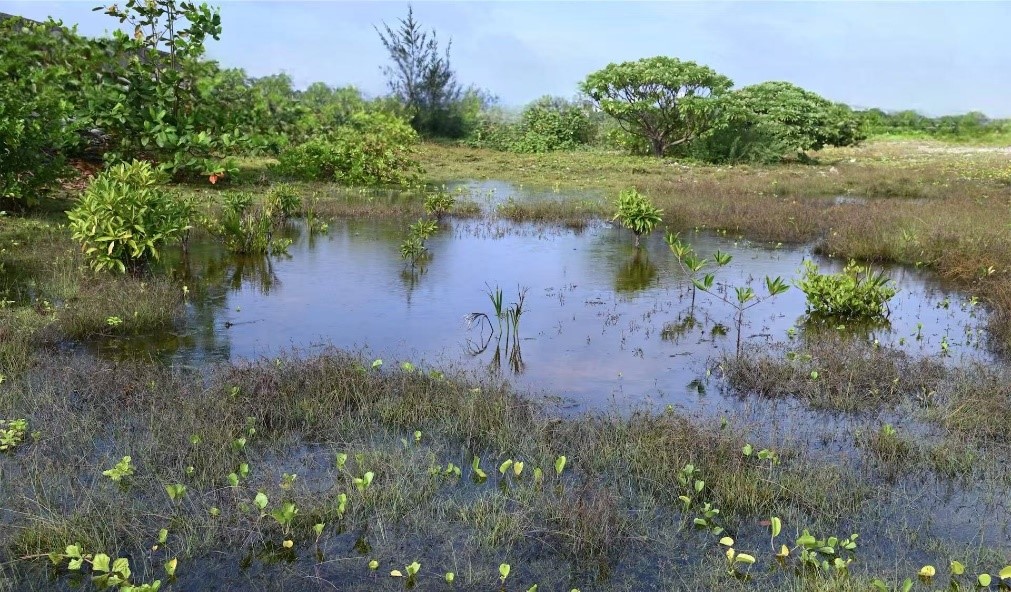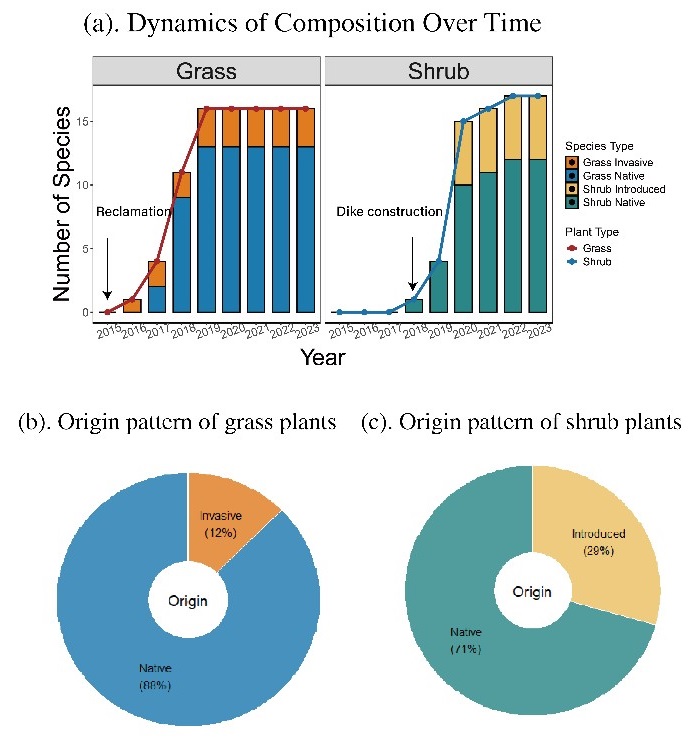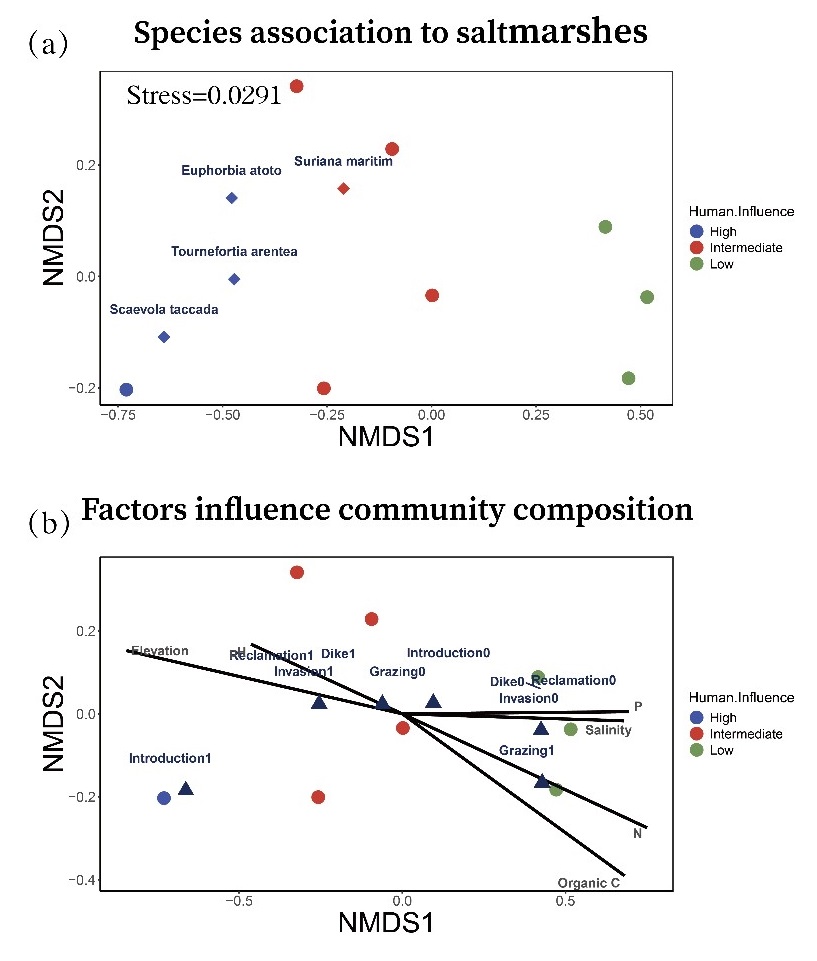Response of primary saltmarsh succession on a tropical coral island in the South China Sea to human disturbance
In 2023, the research team from South China Botanical Garden, Chinese Academy of Sciences discovered a near-natural saltmarsh ecosystem on a tropical coral island region undergoing reclamation in the South China Sea (Figure 1). The related domestic journals reported this finding, stating that it marks a significant transition from artificial intervention to natural succession through an "eco-restoration strategy based on learning from nature and human facilitation" on tropical coral islands. The research team has conducted in-depth studies on this phenomenon.
Saltmarsh represents a classic model of primary succession, yet the processes underlying its initiation and development, especially in response to human influences, remain poorly understood. Pioneer grass species (i.e., Tridax procumbens) rapidly colonized the site within 1 year following land reclamation, with a grass -to-shrub transition concurrently with seeds dispersed by the sea, birds, and wind arriving, indicating a clear trajectory of species establishment and development (Figure 2).
A further comparison of the plant community structures of tropical coral island saltmarshes exposed to varying levels of human influence and an analysis of the environmental factors and human activities that shape community composition revealed that the reclamation project and biological diffusion together facilitated the early establishment of pioneer grasses, initiating primary saltmarsh succession. The accelerated transition to shrub-dominated communities was likely driven by dike construction and the introduction of stress-tolerant shrub species (Figure 3). This results highlight the pivotal role of human activities in both initiating and accelerating primary saltmarsh succession. These insights are critical for informing effective restoration and land management strategies in tropical coral saltmarsh ecosystems.
The related research, titled "Primary saltmarsh succession on a tropical coral island in the South China Sea: Human influences initiate and accelerate the process of succession," was published in the international journal Ecological Solutions and Evidence. Associate Researcher Fellow YIN Deyi and Researcher Fellow Shuguang Jian from South China Botanical Garden, Chinese Academy of Sciences are co-first authors of the paper, with Researcher Fellow REN Hai as the corresponding author. Researcher Fellow Hongfang Lu and Senior Engineer ZHANG Qianmei from South China Botanical Garden, Chinese Academy of Sciences also contributed to the study. The research was funded by the National Key R&D Program, National Natural Science Foundation of China-Guangdong Joint Fund and South China Botanical Garden, Chinese Academy of Sciences. Paper link: https://doi.org/10.1002/2688-8319.70064

Figure 1. A near-natural saltmarsh ecosystem on a tropical coral island.
(Imaged by YIN et al)

Figure 2. Succession and plant origins in the tropical coral island saltmarsh.
(Imaged by YIN et al)

Figure 3. Vegetation in saltmarshes under varying levels of human influence.(Imaged by YIN et al)
File Download: